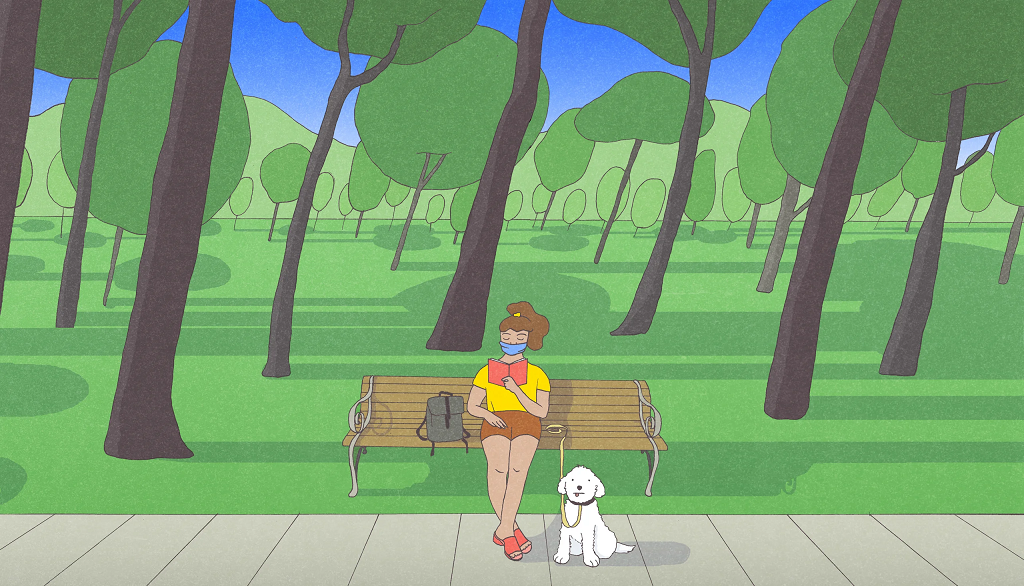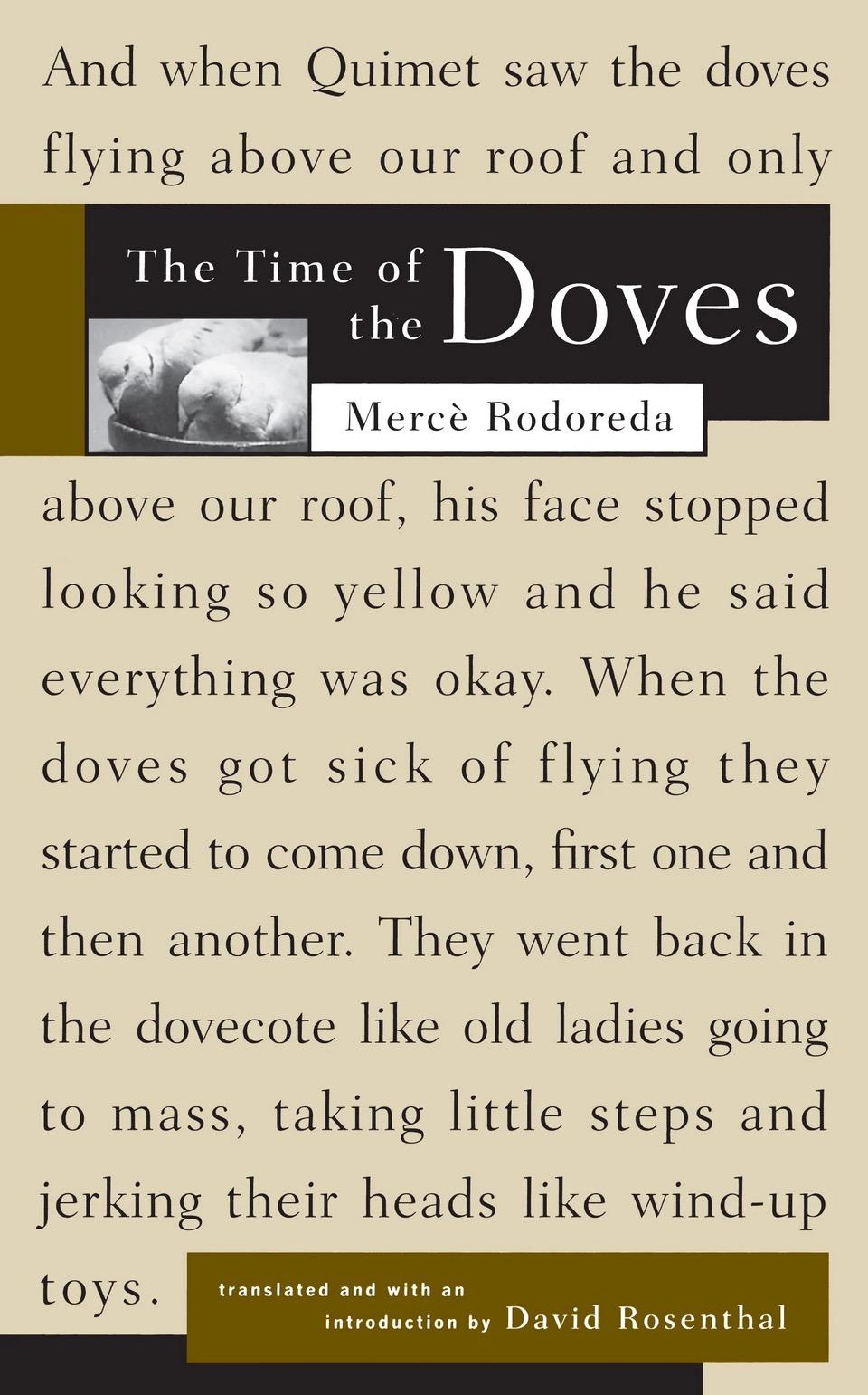The Time of the Doves by Mercè Rodoreda
By Jia Tolentino
“It was hard for me to say no if someone asked me to do something,” Natalia, the narrator, says in the opening paragraph of “The Time of the Doves,” Mercè Rodoreda’s 1962 novel about the Spanish Civil War—a book that feels as fresh and pure and unsettling as a wind blowing your front door open and whipping through your house. Natalia is tired from selling pastries all day, but her friend Julieta has appeared at the bakery and convinced her to go to a party in the town square. “I was dressed in white, my dress and petticoats starched, my shoes like two drops of milk, my earrings white enamel, three hoop bracelets that matched the earrings, and a white purse Julieta said was made of vinyl with a snap shaped like a gold shellfish.”
It’s there, at the Plaça del Diamant, that Natalia meets Quimet, a young man with eyes like a monkey, who calls her Colometa (“little dove”) and tells her that she’ll be his wife by the end of the year. The nickname is apt—Natalia is helpless, dignified, tragic—and so is Quimet’s prediction: soon, they’re married, with two small children. As Natalia’s world shrinks to her apartment and her new job cleaning the house of a rich family, the world obliquely begins to change. There is no more milk, no more gas; conflict breaks out in the streets, and Quimet joins the People’s Republican Army. Natalia is left alone in Barcelona, with her starving children and the half-wild flock of birds that Quimet was trying to raise on the roof.
Rodoreda, who attended school for only three years and married her mother’s brother when she was twenty, began publishing fiction in the nineteen-thirties, in the lead-up to the conflict she depicts in this novel: she always wrote in Catalan, a language that was banned when Franco came to power, in 1939. She wrote “The Time of the Doves” in exile, in Switzerland, and it has slowly gained recognition both as a canonical work of Catalonian literature—Rodoreda is often called the most influential Catalan writer of the last century—as well as a vital, vivid, existential novel about war. The un-self-conscious beauty and the phantasmagoric pain in her work add up to a kind of sharp, transportive pleasure. I was transfixed when I read it for the first time, recently. I felt like Natalia: naïve, permeable, and keenly alive.
Jia Tolentino is an American editor and writer. After earning an MFA degree from the University of Michigan, she collaborated with a number of cultural magazines before becoming the youngest staff writer in the history of The New Yorker. In May 2020 she took part in the Primera Persona Indoors festival in Barcelona’s CCCB.
The Time of the Doves, tr. by David Rosenthal, was published in the US by Graywolf Press. Newly translated by Peter Bush and published in the UK as In Diamond Square by Virago Press.
For more books by Mercè Rodoreda published in the US, visit Open Letter Books:
Camellia Street, tr. by David Rosenthal
Death in Spring, tr. by Martha Tennent
Garden by the Sea, tr. by Maruxa Relaño and Martha Tennent
The Selected Stories of Mercè Rodoreda, tr. by Martha Tennent
War, So Much War, tr. by Maruxa Relaño and Martha Tennent








